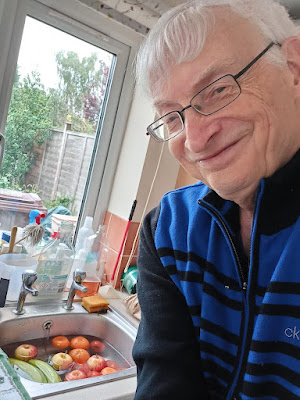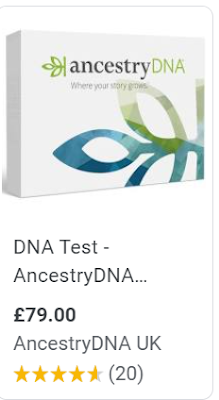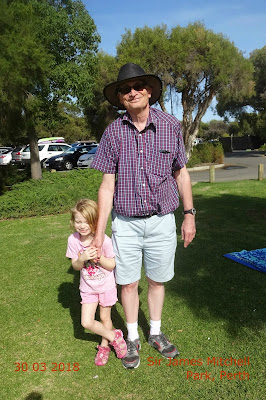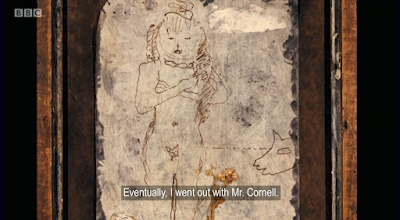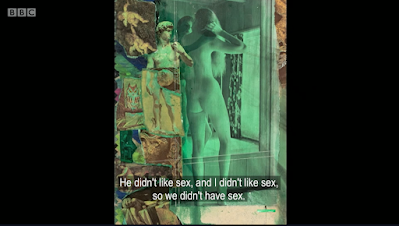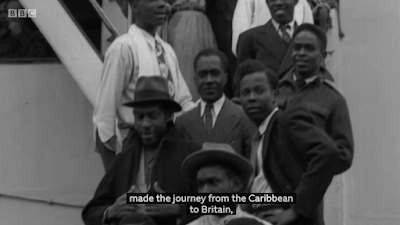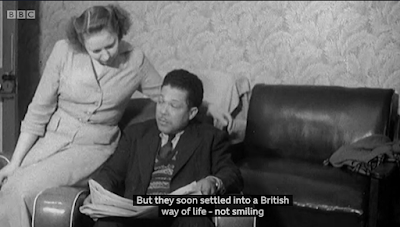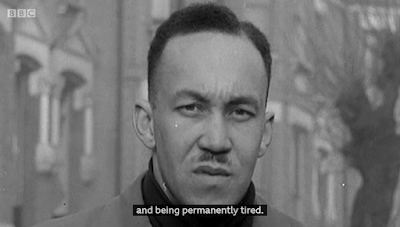09:15 A text comes in from Gill, my sister in Cambridge. After she sent her DNA in to a huge DNA database, she discovered a couple of weeks ago, that we have a 60-something cousin, BBC journalist David, whom we neither or us knew about. David was adopted as a baby, and until now he has not had any real idea very much about his "real family".
some typical BBC journalists (not including David haha!)
Gill and I have been doing some research on the internet, mainly to find out about someone called Jonathan, another adoptee, in his early 70's, who we believe is David's brother or half-brother.
Gill and I are hoping in the end to be able to put the two men in contact with each other after their 6 to 7 decades of mutual ignorance, but we have to wait at the moment, because one of our other cousins is reluctant to release information for the moment, due to "sensitivities" surrounding the reasons for the two men's adoption as babies.
There are some extraordinary coincidences linking the two men's lives, Gill and I have discovered, drawing on Facebook and other social media - it's amazing what you can find out about people on the internet these days - my god!
Jonathan, we believe, married a young Spanish woman in 1974 and then moved to Spain, where Jonathan's wife gave birth to two daughters. And David, the BBC journalist, spent many years in Spain, in the Balearic Islands, and his children are all bilingual/trilingual in Spanish and Catalan. And we think Jonathan started out as a teacher in South Wales, and then may possibly have been involved in language teaching in Spain. How weird is that, eh????!!!!!
What are the chances of that happening, eh??!!!!!! [That's enough astonishment! - Ed]
flashback to Fathers Day 2017: Jonathan, with his Spanish wife,
and their 2 daughters and 3 grandchildren, who all live in Spain, we think
It's my job now to contact the so-called "reluctant cousin", to see if we can start the process of putting the two men in contact with each other. I plan to do that in the next few days - yikes!!!
10:00 I spend the morning vacuuming the whole house - a good work-out in its own right. We also change the sheets on our bed. Now we feel tired and have to have a cup of tea - my god!!!
I'm tired after vacuuming, so Lois gets me a cup of tea
to have on the couch
14:30 Lois and I settle down in front of the laptop to lead the fortnightly meeting of the U3A Danish group that we run, the only one in the UK, we believe. Another enjoyable session, although one more more time is taken up on typical "grandparent chit-chat" - in English - about children and grandchildren etc than is taken up by learning Danish. What madness!!!
flashback to 2014, 7 years ago yesterday - Lois and I spend the day
with our daughter Alison and her 3 children and with our other
daughter Sarah's twins - happy days!!!
One of these days we'll have to get down to doing some real Danish work - we don't want to be chucked out of the U3A, if somebody leaks the truth about us to the local U3A inspectors haha!
Scilla, the group's Old Norse expert, doesn't make an appearance again, which is a pity - it's nice to get Scilla's perspective on how today's Danes have inherited a lot of their language and thought-processes from people like Leif Eriksson, who discovered America etc. Let's hope she joins us next time.
Leif Ericksson spots America in the distance [reconstruction only]
16:00 At the end of the Danish meeting Lois and I feel totally drained as usual. We relax on the couch with a Magnum ice-cream each.
we eat a Magnum each on the couch
Lois and I first discovered Magnum ice-creams when travelling in Hungary about 20 years ago or more.
flashback to 1998: I stand beside an enormous Magnum advert on a shelter
near Lake Balaton, Hungary: for reference I myself am 5ft 10in high and 1ft 3in wide (?),
so the sheer size of this ad can be gauged simply from that – what madness!
My Hungarian pen-friend Tünde emailed today with a news story (Blikk.hu) about Formula 1 champion Lewis Hamilton, who from his webpage has apparently called on the Hungarian people to vote against their current Prime Minister Viktor Orbán and his government in the forthcoming referendum on sexual freedoms, because of the government's anti-LGBTQ stance (which incidentally is called anti-LMBTQ in Hungarian).
You might think that nobody's going to take any notice of a Formula 1 driver, even the world champion, when he talks politics. However, the Hungarians, like the Danes, are very into Formula 1. And the Hungarian Grand Prix is coming up soon, meaning that Lewis is going to be very much in the public eye over there in the next couple of weeks, that's for sure! Or will Or-bán ban him haha??


Unfortunately Tünde has some other news, very bad for the UK: - unprecedentedly hot temperatures in the 40's Celsius (i.e. over 104 F) are coming our way, although I don't know if that includes our area - but yikes !!!!
[Pictured: two models sitting in front of a giant picture of the Thames at London]
What a crazy planet we live on !!!!!!
20:00 We watch a bit of TV, an interesting documentary on the Japanese artist Yayoi Kusama, despised in art circles for decades, but now recognised as the world's best-selling living female artist.
Just like Aunt Ada Doom in Stella Gibbons' novel "Cold Comfort Farm", who as a child famously "saw something nasty in the woodshed", Japanese artist Yayoi Kusama, as a child, "saw something nasty in the ricefield".
Both women were never the same again, and carried the burden of the "something nasty" throughout the rest of their lives.
flashback to Tuesday evening when we saw Aunt Ada (Sheila Burrell)
in the 1995 film version of "Cold Comfort Farm": Ada famously
as a child, "saw something nasty in the woodshed"
In Aunt Ada's case, Gibbons doesn't specify what the "nasty thing" was, but in the case of Kusama, it's thought that she saw her father having sex out in the fields with one of his many girlfriends. Her mother had a habit of sending little Yayoi out there to spy on her father's amorous activities.
This incident, and whatever it was that she saw, is said to have informed much, if not all, of Kusama's work as an artist.
Yayoi Kusama as a young woman - "saw something nasty in the rice-field"
Kusama's
trademarks have always been polka dots, giant nets, penises, and also penis-shaped objects of various types.
Early in the
1950’s, as a young woman, Kusama moved to New York, but was not accepted by the
local art world - she was Japanese, and also a woman: two big reasons why she
wasn't taken seriously. But this lack of acceptance did not prevent other male
artists from shamelessly copying her ideas, it seems, including Oldenburg,
Warhol and Samoras.
Yayoi Kusama as a young woman in New York
her famous penis chair and penis
sofa, that visitors all want to try sitting on
All through her life, Kusama has never had a long-term sexual relationship with anyone, although she became very close for a time with Joseph Cornell, a reclusive fellow-artist. Cornell was a surrealist who lived with his mother. Cornell's work was in demand, but he didn't like selling his work - however said he would agree to sell, "if a beautiful woman were introduced to him".
What a crazy world we live in !!!!
Cornell pursued Kusama relentlessly by constantly phoning her. She would say, "Joseph, I have to go now", and put the phone down. Cornell however would stay on the line, and when she picked the phone up several hours later, she would hear his voice speaking to her again.
Once he wrote her 14 letters in a single day - it nearly broke her mailbox, she says. Eventually she agreed to go out with him.
Kusama says that Cornell's mother "was completely crazy". Once when she caught Kusama kissing her son in the garden, she poured a bucket of cold water over her.
What madness !!!!!
Lois and I saw an exhibition of Kusama's work in 2015 in the Philadelphia Art Museum north of Copenhagen, with our daughter Alison, her husband Ed and their 3 children, Josie, Rosalind and Isaac, who were then living in Denmark.
Kusama was very much
into the concept of infinity, using mirrors that repeated imagery in an endless
sequence, which is a very impressive component of her exhibitions, as we found.
Also, there is the notion of the observer losing himself in this ocean, or this
universe, of infinity, which is nice.
Flashback to December 2015: Lois and I visit a Kusama exhibition in Denmark, together with our daughter Alison and her family
one of Kusama's giant collections of
penis-shaped objects, - my god, what madness !!!!
We especially liked Kusama's
representations of infinity, using mirrors, etc. Here we see endless
copies of me, in the act of taking endless photos of Lois
21:30 To wind down before bed, we watch this week's programme in Philomena's fascinating historical series, "Cunk on Britain", this week all about the first half of the twentieth century.
Lois and I didn't know that after the NHS was created, there was an acute shortage of labour for staffing hospitals and providing healthcare, and, as a result, the Government began encouraging immigration from Commonwealth countries, particularly in the Caribbean.
22:00 We go to bed - zzzzzzzz!!!!!!
